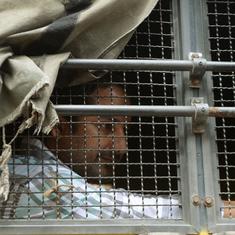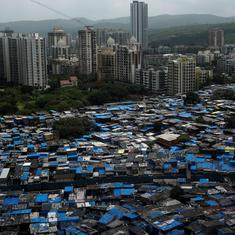How do you look at India’s decision to abstain from the crucial voting on the United Nations Human Rights Council resolution?
It was an unfortunate decision and caught us by surprise. We have always been promised unwavering political support by the Indian government and this latest decision was not in line with the promises made. We expressed our concerns, and our fear was assuaged by the Indian government. We were told that it should not be seen as a departure from India’s traditional stand. We accepted the reasoning. However, just a couple of days after this assurance, India again abstained from a crucial vote in the United Nations on Palestine. The UN’s Economic and Social Council approved the accreditation of the London-based Palestine Return Centre. Israel put up a resolution opposing the accreditation and India again abstained from voting. Sweden and Portugal voted against Israel’s objection. Clearly, we are very confused now. The onus lies on India to walk the talk.
Do you think the government of Narendra Modi is recalibrating India’s relations with the Israelis?
Modi will be the first Indian prime minister to visit Israel… What India does with Israel on a bilateral level is none of our concern. Our concern only starts when the issue of Palestine is involved. India has all the right to maintain whatever relation it wants with Israel. However, on the issue of the creation of an independent and sovereign state of Palestine, we do expect India to follow the traditional line it has followed since the days of Mahatma Gandhi and Pandit Nehru. Having said that, I do realise that there would emerge situations where interests would be in conflict. However, several countries in the region and outside of it trade this part in a constructive manner, and we expect the Indian government to do the same.
Has Indian aid to Palestine declined in the last decade or so?
No, it has not. India has been committed towards facilitating the process of strengthening institutions in Palestine and to that end nothing has changed. India built a school and also helped us set up a hospital. It has also helped us in capacity building through its established institutions. The people and the leadership of the State of Palestine will always be indebted for this generosity. However, let me add here that at this crucial juncture of our struggle towards an independent and sovereign Palestine, what we need most is political support. Especially when the tide is turning in Europe and also, to some extent, in America, against Israel.
How do you look at the nuclear deal between Iran and P5+1 (US, UK, France, Germany, Russia and China)? What will be its implications on Palestine?
We welcome the deal. Anything that can bring stability in the region will benefit us also. Having said that, let me also add that just like the powers – especially the US – were determined to conclude the negotiations with Iran and went to great lengths to do so, we see the Palestinian issue as an equally important matter and expect the US and world powers to exert the same effort. The Palestinian issue should not be collateral damage to the Iranian deal. In fact, now that the deal is done, it would be difficult for [Benjamin] Netanyahu [Israel’s Prime Minister] to use the Iranian bogeyman as a red herring. The focus now should shift to the Israeli nukes. It is a big elephant in the room which the Western powers are not ready to talk about. This should change. If we aspire for a Middle East or the Greater Middle East without nuclear weapons, we cannot achieve that before dealing with the issue of Israeli nuclear weapons.
Do you expect greater US intervention on the Palestinian issue after the Iran deal?
In spite of all the optics, no one can miss the fact that there is a growing frustration against Israeli antics in Europe and even the US, which have been die-hard supporters of Israel. The statements coming out of the White House and the State Department are a sign of changing realities in the US. I am not saying there will be a tectonic shift in the US’s position vis-à-vis Israel. For the foreseeable future it [the US] will continue to defend its atrocities and barbarism and will continue to defend its [Israel’s] actions in the UN. But slowly and surely it has started to realise that its own national interest is not in sync with Israeli interests. And one can see the frustration emerging. President Obama and his administration have shown some resolve to correct historical blunders, but they are still too little. But we are patient people. We are ready to wait.
How do you look at the rise of the Islamic State? What has been its impact on the Palestinian struggle?
There have been videos of IS commanders threatening to take on Hamas in Gaza. Let me start with a very clear message that the so-called ‘Islamic State’ is neither Islamic nor a State. Just because some people choose to call themselves ‘Islamic State’ does not mean that it has theological or jurisprudential legality. It does not. The entire region has been affected by its misdeeds and so have we. India, too, unfortunately has suffered from their actions as many of its citizens are under their captivity. Has it affected our struggle? Well, yes and no. No, because ours is a nationalistic movement with no role of religion in it. We aspire for a secular Palestine. Ours is a just cause and only those with a clear conscience and who believe in peaceful coexistence should identify with our cause. As far as Gaza is concerned, we are positive that Hamas has the capability and wherewithal to successfully counter any threat emerging from IS. There appears to be some presence of this organisation but it is minimal. Just because you have a flag and an audio-visual medium to show yourself waving it, it does not mean that you actually have a serious presence there. Hamas has killed some of its members and arrested others. I think it will be nipped in the bud.
What does the Palestinian government expect by going to the International Criminal Court against the Israeli assault of last year?
We have asked it to exercise jurisdiction over any crimes committed in the occupied territories of East Jerusalem, the West Bank and Gaza from June 13, 2014. This covers events prior to and during last summer’s Israeli attack on Gaza. Action is also being sought by us against the expansion of Israel’s settlements in the West Bank and East Jerusalem – lands it has occupied since 1967. Article 8 of the Rome Statute says the unlawful deportation, transfer or confinement of protected persons – those living in territory which is under military occupation – constitute a war crime. Palestine has and will continue to use all legitimate tools within its means in order to defend itself against Israeli colonisation and other violations of international laws.
Do you believe that Israelis are serious about the Two-State solution, considering Netanyahu’s electoral speeches which promised there would not be a Palestinian State under his watch?
By saying so in his speeches, Netanyahu has pushed his luck too far. This was ridiculous even by his own standards of ridiculousness. The occupation forces are working hard to destroy the Two-State solution. By expanding and building new settlements – especially in Jerusalem and other occupied territories – by its deliberate racist and discriminatory laws, by the targeting of the al-Aqsa mosque and its worshippers and by Israeli settler violence and extremism, Israel is closing the door to a just solution. Even the US has now realised that Netanyahu is not a leader to be trusted and this was reflected in some of their recent statements though in not as many words. The European Union realised it a bit earlier and it has really come forward to recognise us inside its parliaments.
Do you think the attitude of the ordinary Israeli has changed towards the Palestinian cause after Netanyahu’s coming to power?
Surveys and opinion polls have time and again revealed that the Israeli public has turned consistently towards the far right. The support for war remains at an all-time high. They also support the enactment and strict implementation of racial and segregation laws. It is a society that has lost its moral compass long ago. The decimation of the Israeli left in electoral politics is a stark example of that. It is becoming extremely tough for us to see the Israeli people as separate from their government. They are in sync. Netanyahu is a symptom of the malaise that is plaguing this society.
This article was originally published on Hard News.










